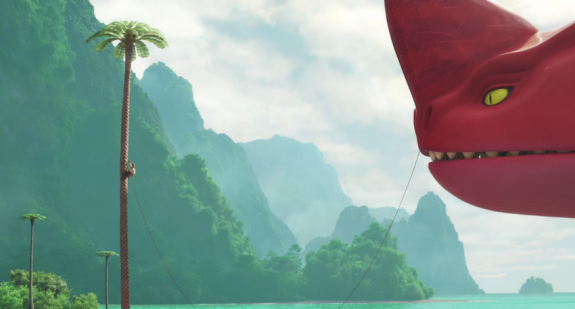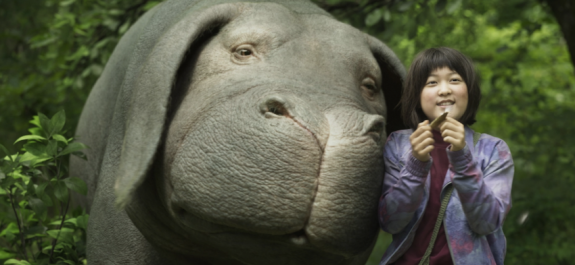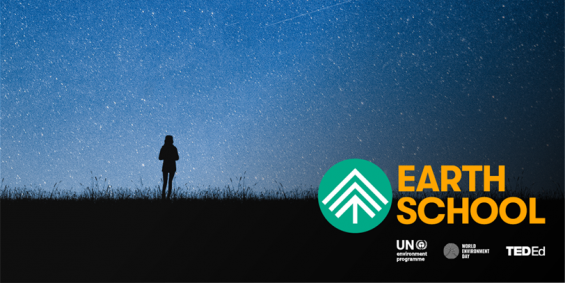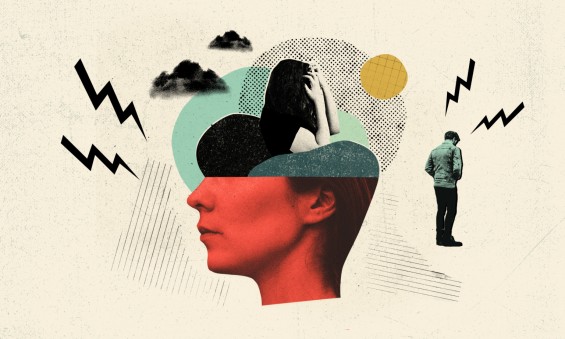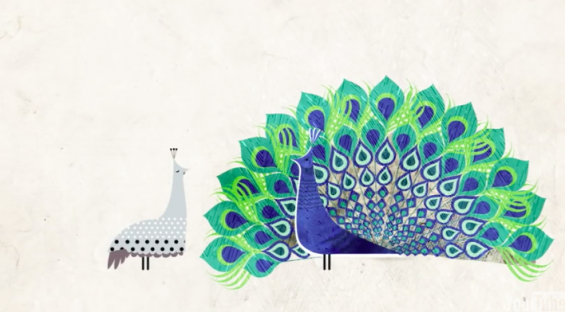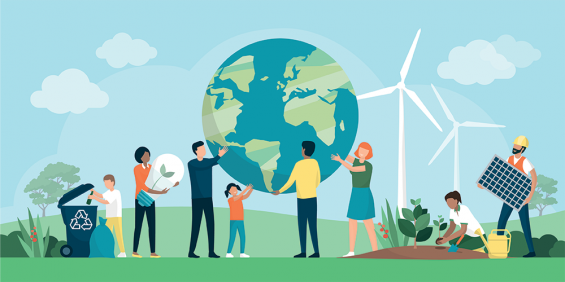
9 must-watch movies you didn’t know were about climate
Throughout the ages, artists have used their canvases to deliver powerful social messages and influence change.
So as stories about extreme weather and environmental catastrophe flood our daily newsfeeds, it’s no surprise that many filmmakers are grappling with the climate crisis — the single biggest planetary health threat facing us today.
From ravaged landscapes to terrifying dystopian societies, our media reveals our innermost fears and anxieties about the future of our world. Mental health professionals say that eco-anxiety, or the fear of environmental doom, is a natural response to a real threat — and movies, TV shows and books naturally reflect the moods of any given era. In fact, a growing number of young people worldwide are reporting increasing feelings of anxiety, anger, powerlessness, helplessness, guilt and dissatisfaction with government responses to the climate crisis.
But while humans may have been imagining the apocalypse for literally hundreds of years — they’ve also been dreaming of a cleaner, more beautiful, more just world. In that spirit, these nine films are reimagining the “cli-fi” genre with stories of hope and resilience — stories about communities coming together to avert catastrophe and stubborn individuals who go up against powerful forces to safeguard the future.
Fantasy
1. The Sea Beast (2022)
In a world where terrifying beasts roam the high seas and ravage coastal towns, monster hunters like the great Jacob Holland are celebrated as heroes. But when a curious young girl, Maisie Brumble, stows away on his fabled ship, they embark on a journey into uncharted waters and discover there may be more to these creatures than meets the eye. This heart-warming film (which is also part of Netflix’s sustainability stories collection) is ultimately about questioning the stories we’re told and standing up for what’s right despite seemingly impossible odds.
2. Ponyo (2008)
Many of Studio Ghibli’s films tackle environmental issues, and Ponyo is no different. The film opens by highlighting how human activity in a harbor town has polluted the water with mounds of garbage and murky black sludge. On the surface, this is a story about the friendship between a young boy (Sasuke) and a magical fish that transforms into a little girl (Ponyo). But it’s also a story about Sasuke’s unconditional love for a marine creature and the ocean she inhabits, and the lengths he is willing to go to prove his devotion and save her home.
3. Mowgli: Legend of the Jungle (2018)
Mowgli is an orphaned boy who was raised by a pack of wolves in the jungles of India and has always struggled with a sense of unbelonging. But as the human and animal worlds collide, Mowgli finds he alone is uniquely positioned to act as a bridge between these two forces. The film’s message rings clear: harmony and mutual respect between humans and nature is necessary for the survival and prosperity for all.
Romance
4. Falling Inn Love (2019)
Falling Inn Love stars eco-conscious designer, Gabriela, who wins a rustic New Zealand inn from a contest only to discover it’s run down from years of neglect. She teams up with local contractor and restoration expert Jake to restore the inn to its former glory while making eco-friendly upgrades. (And yes, plenty of flirting ensues!)
5. Weathering With You (2019)
Unlike most stories that illustrate catastrophe on a global scale, Weathering With You conveys the relatable everyday experience of living with the impacts of global warming. In a version of Tokyo, Japan, that experiences never-ending rain, a boy named Hodaka Morishima meets a girl named Hina Amano who can summon the sun — but at a great personal cost. The film demonstrates how an individual’s actions (and sacrifices) can make a huge difference in the grand scheme of things as long as you choose to prioritize the greater good.
6. Holiday in the Wild (2019)
Romantic comedy and wildlife conservation might be a peculiar combination for some, but Holiday in the Wild manages to make it sexy. After splitting up with her husband, Kate embarks on what was supposed to be a romantic vacation to Africa on her own. When Kate meets Derek, she’s whisked away into a world of elephant conservation where she finds renewed personal meaning — and gets a second chance at romance.
Adventure
7. Okja (2017)
Mija is a South Korean girl growing up on an idyllic mountainside with her grandfather and best friend: Okja, a giant “superpig.” When her beloved pet Okja is abruptly taken away from her, Mija embarks on a dangerous rescue mission that places her at the center of a sinister corporate conspiracy. The film raises thought-provoking ethical questions about animal farming, meat production and the impact of our dietary choices on the planet.
8. WALL-E (2008)
One of the most popular environmental films of the 2000s is none other than WALL-E, which stars a trash-compacting robot and a high-tech, egg-shaped robot named EVE. Against the backdrop of a polluted, uninhabitable Earth, the sentient pair of robots go to great lengths to save a living seedling and prove that the planet can — and should be — saved. While the film does show an apocalyptic scenario of Earth, the overarching message is that humanity can come together and heal the environment, no matter how far gone it may seem.
9. Tomorrowland (2015)
In Tomorrowland, Earth is almost certainly going to end in about two months. Although many feel resigned and refuse to do anything about it, the protagonist, Casey, refuses to give up. Her indomitable will and hope for the future reduce the probability of world catastrophe by a tiny percentage, but it is significant enough to make a difference. Overall, the story demonstrates that every individual can shape the future by remaining optimistic — and more importantly — actively doing something to shape it.
In this TED Talk, author and physics professor Vandana Singh reads from her latest work of speculative fiction and shares a hopeful vision for Earth’s renewal:
…
ABOUT THE AUTHOR
Carla M. Delgado is a freelance health and science journalist based in the Philippines.
This piece was adapted for TED-Ed from this Ideas article.

